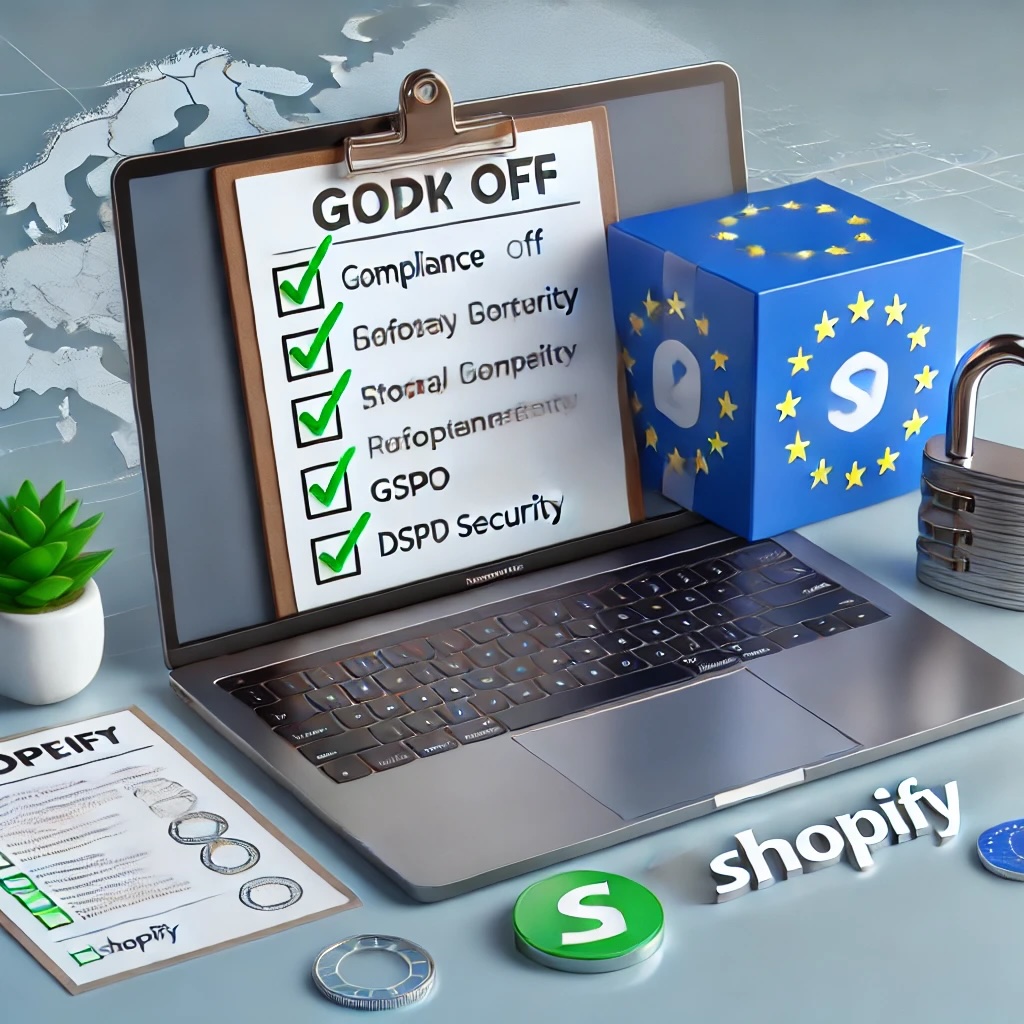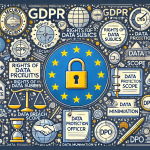
GDPR checklist for Shopify users: How to comply with European data protection regulations
Introduction
European data protection is one of the strictest regimes in the world, and the General Data Protection Regulation (GDPR) ensures that personal data within the EU is treated with the utmost care. For online merchants using Shopify, it is crucial to be aware of GDPR requirements and ensure their stores are compliant. While Shopify provides many useful tools and features to help comply with GDPR, there are still some areas where Shopify is not fully compliant, particularly due to the fact that many of its services are hosted in the US.
This article provides a comprehensive GDPR checklist for Shopify users and highlights why Shopify does not comply with European data protection requirements in all aspects and what steps you as a store owner need to take to ensure that your store complies with the GDPR.
Why is Shopify not fully GDPR compliant?
Shopify is a popular e-commerce platform that allows businesses worldwide to easily create and run online stores. But while Shopify offers many privacy-related features, there are some crucial points that Shopify users in Europe need to consider:
1. Data hosting in the USA:
A key aspect that prevents Shopify from being fully GDPR compliant is that many of its services and servers are hosted in the US. The GDPR requires that personal data of EU citizens be processed either within the EU or in countries deemed to provide an adequate level of data protection. Since the EU-US Privacy Shield was eliminated in 2020, there is no longer a simple legal basis for data transfer to the US. This means that Shopify users must take additional measures to ensure that their data processing is GDPR compliant.
2. Standard contractual clauses:
Shopify uses standard contractual clauses (SCCs) to justify data transfers from the EU to the US. However, these clauses alone are not always sufficient to ensure the level of data protection required by the GDPR. Companies must also assess whether the data in the US is protected from access by US authorities, which is challenging in practice.
3. Lack of control over third-party apps:
Many Shopify users integrate third-party apps into their stores to provide additional functionality. These apps often process personal data, and not all third parties are GDPR compliant. Since Shopify does not have full control over these apps, the responsibility for GDPR compliance lies with the store operators.
4. Consent management:
While Shopify offers some consent management tools, these are not always sufficient to meet the GDPR’s strict requirements for informed and explicit consent from users. This particularly concerns the use of cookies and tracking tools.
The GDPR checklist for Shopify users
To ensure your Shopify store is GDPR compliant, you should follow the steps below:
1. Conclude a data processing agreement (DPA):
Make sure you have a data processing agreement (DPA) in place with Shopify. This agreement ensures that Shopify, as a data processor, processes your data in accordance with the requirements of the GDPR. Shopify offers such an agreement as part of its services, but you should read it carefully and make sure all relevant clauses are included.
2. Verification of data transfers:
Because Shopify stores much of its data in the US, you should review the Standard Contractual Clauses (SCCs) used by Shopify and ensure that additional safeguards are in place to protect your customers’ data from unauthorized access. This could include encrypting the data or implementing pseudonymization techniques.
3. Cookie consent management:
Implement a robust cookie consent management tool in your Shopify store. This tool should ensure that visitors to your website give their explicit consent to the use of cookies and other tracking technologies. It should also provide the ability to withdraw consent at any time.
4. Update privacy policy:
Your privacy policy should be clear and transparent, covering all aspects of data processing in your Shopify store. This includes disclosing that personal data may be transferred to the United States and explaining the measures you take to protect that data.
5. Check third-party apps:
Check any third-party apps you use in your Shopify store for GDPR compliance. This includes ensuring that these apps also offer data processing agreements and that they process your customers’ data securely and in compliance with European data protection regulations.
6. Ensuring the rights of data subjects:
The GDPR grants individuals certain rights in relation to their personal data, including the right to access, rectification, erasure and data portability. Make sure your Shopify store has processes in place to ensure these rights are met. Shopify offers some built-in tools to meet these requirements, but you should make sure they are correctly configured and ready to use.
7. Appoint a data protection officer:
If your company processes personal data on a large scale, you should consider appointing a Data Protection Officer (DPO). A DPO can help you ensure compliance with the GDPR and serve as a point of contact for data protection inquiries.
8. Implement security measures:
Make sure you have all technical and organizational security measures in place to protect your customers’ data from unauthorized access, loss, or destruction. Shopify offers some security features like SSL encryption and regular backups, but you should also take your own steps to secure your data.
9. Enter into a contract with third parties:
If you use external service providers who have access to your customers’ data, you must ensure that you have a data processing agreement with these service providers. This is especially true for marketing and analytics tools, which often process large amounts of personal data.
10. Conduct regular audits:
Conduct regular audits to ensure that your Shopify store remains GDPR compliant. This should include reviewing all processes, data processing activities, and security measures. Regular audits will help you identify and fix potential vulnerabilities early on.
11. Documentation of consent:
Document all consents you receive from your customers. This includes consent to the use of cookies, to send newsletters and to process personal data. The GDPR requires that you can prove at any time that the consent was given voluntarily and in an informed manner.
12. Training your employees:
Ensure that all employees who work with personal data receive regular training on GDPR requirements. This will help raise awareness of data protection risks and ensure that all employees comply with applicable regulations.
13. Apply data minimization:
The GDPR requires that companies only collect and process the data that is absolutely necessary. Review your data processing practices and make sure you are not storing unnecessary personal data. This will reduce the risk of data breaches and lower GDPR audit costs.
14. Response to data breaches:
Develop a data breach response plan that includes clear steps for reporting and resolving incidents. The GDPR requires that data breaches must be reported within 72 hours of becoming aware of them. A clear plan will help you act quickly and efficiently in an emergency.
15. Consent for marketing activities:
Make sure you have explicit consent from your customers for all marketing activities, especially for sending newsletters. Use double opt-in procedures to ensure that consent is verifiable and offer your customers the opportunity to unsubscribe from marketing communications at any time.
Conclusion
GDPR compliance is crucial for Shopify users in Europe. Although Shopify provides a number of tools to help you meet GDPR requirements, there are still areas where you as a store owner need to take additional measures. In particular, the fact that many Shopify services are hosted in the US requires careful consideration and additional safeguards to secure your customers’ data. With this GDPR checklist, you can ensure that your Shopify store takes all the necessary steps to comply with European data protection regulations and earn your customers’ trust.



